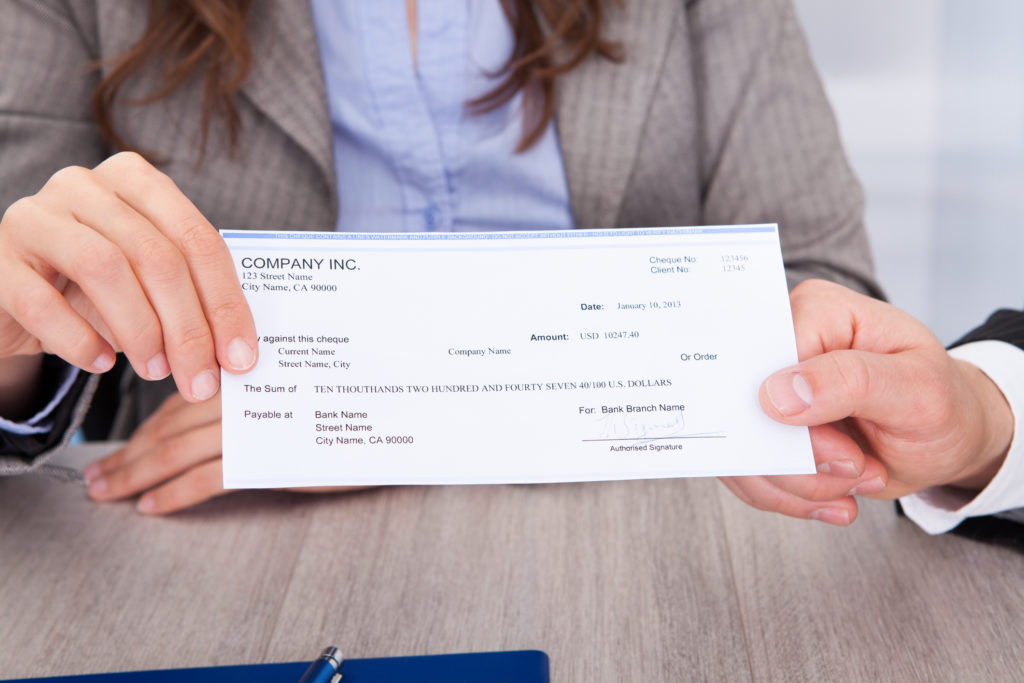
After an auto accident, you may incur numerous expenses such as medical bills, vehicle repair, and rental car costs. You may be experiencing severe pain. You may be unable to work temporarily or permanently and are losing wages. It can all add up to an enormous financial and psychological toll.
However, if the other driver was partially or wholly at fault, you may be entitled to compensation. This compensation is known in the legal world as “damages.” There are several types of damages, and the amount you receive depends on numerous factors.
If the other driver was totally at fault, you should be able to collect 100 percent of the damages. When more than one person is at fault for the accident, Arizona follows the doctrine of comparative negligence. This means drivers are compensated according to the percentage they are at fault. So, if you were 20 percent liable and the other driver 80 percent to blame, you could collect 80 percent of the damages.
Let’s take a look at some of the damages you may be entitled to.
[faq_section]
Consult with an experienced attorney
Calculating how much compensation you deserve for pain and suffering, lost wages, disability and other issues is extremely complicated. It is wise to consult with an experienced personal injury attorney to make sure you receive the maximum compensation. The Lamber-Goodnow Personal Injury Law Team offers free, no obligation consultations. There are no up-front costs. We get paid only if you get paid.
#KC
Who Is Responsible for Providing Me with a Rental Car While My Vehicle Is Being Repaired?

The trauma of an accident and injuries is stressful enough. But when your vehicle is totaled or needs to be repaired and you have to get a costly rental car, it’s even more stressful. After a serious accident, the average car stays in the repair shop for two weeks. So it can cost several hundred dollars to rent a replacement car.
However, if your car was damaged in an accident that was not your fault, you should be able to get your rental car paid for. Here’s what you need to know.
Q: What is the coverage by the at-fault driver’s insurance company?
A: If the other driver’s negligence caused the accident, and he or she has proper auto insurance, then that insurance company should pay for your rental car for a reasonable amount of time. Contact the at-fault driver’s insurance company to secure a vehicle as soon as you can. This isn’t always a speedy process, so you may have to rent the vehicle and get reimbursed later. Also find out if the insurance company has approved rental companies from which they want you to choose.
Note that you can’t rent a luxury sedan if you normally drive an economy car and expect it will be covered. Insurance companies allow you to rent a vehicle similar to your damaged vehicle. However, insurance companies also place dollar limits per day and per accident. So rent a reasonable vehicle to ensure the insurance company covers the full cost. This is especially important to keep in mind if your vehicle will be in the repair shop for a long time.
Find out if your insurance policy covers damage to rental cars before purchasing a collision damage waiver from the rental company. If the insurance company tries to deny you coverage, ask them to give you their reasons in writing. They are required by law to do this.
Q: Can you do reimbursement from insurance company?
A: It can be faster and easier to get rental car coverage from your insurance company. But you can do this only if you have purchased rental reimbursement coverage. Also called rental car coverage, this optional benefit costs about $1 or $2 a month with most auto insurance policies. Though many people choose to omit this inexpensive coverage, it can save hundreds of dollars in the event of an accident. These policies typically have a dollar limit, so check your policy before renting a vehicle.
Rental reimbursement coverage can also be used if your car is stolen, vandalized, or damaged by severe weather. It cannot be used if your car needs regular repairs or maintenance. Likewise, you can’t use it to rent a car for a road trip to the beach.
If using rental reimbursement coverage, you can opt for one of two choices:
- Contact your insurance company and find out what their approved rental car providers are. You can then rent a vehicle from one of these providers. The company will bill your insurance company directly.
- Or you can rent a car from any car company you choose and pay up front. Then you can send the receipts and a claim form to your insurance company. They will reimburse you for the cost of the rental.
Again, when you rent the car, you will be asked if you wish to purchase collision damage coverage. Your rental reimbursement coverage does not include this. However, if your general auto insurance policy includes collision and comprehensive coverage, this will usually transfer over to a vehicle you are renting while your damaged car is getting repaired. Discuss this with your insurance company.
Q: When the other driver doesn’t have insurance?
A: Sometimes, the at-fault driver has no insurance – or inadequate insurance. In this case, obviously you cannot be covered under his or her insurance policy. If you have rental reimbursement insurance, you can use that instead. Alternatively, if you have purchased uninsured motorist coverage and/or underinsured motorist coverage with property damage, your repairs and rental car will be covered under that. Often, drivers try to save money by declining this coverage. But given that 12.6 percent of drivers nationwide lack insurance, it can save you a lot of money in the event of an accident.
If the at-fault driver has no insurance, and you do not have rental reimbursement insurance or uninsured motorist coverage, you’ll probably have to pay for the rental car yourself. In some cases, you may have an alternative option. But in a tricky case like this, you should consult with an expert attorney.


